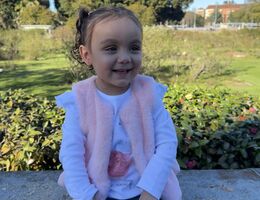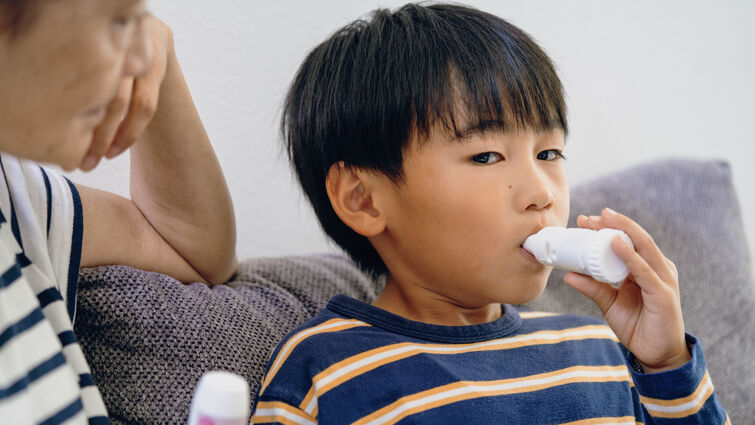

As wildfires become more frequent and intense across California, physicians are urging parents with children to prepare for worsening air quality and respiratory complications.
Barbara Ariue, MD, a pediatric allergy and immunology specialist at Loma Linda University Children’s Hospital, says that toxic particles from wildfire smoke are triggering an increase in asthma attacks and emergency department visits among children in the Inland Empire and beyond.
“Asthma is a condition where the lungs are more sensitive and inflamed, so any environmental trigger, like smoke, can cause serious breathing problems,” Ariue said.
“We’re seeing more hospitalizations, more kids needing rescue inhalers, and even stronger medications like oral corticosteroids during wildfire events.”
Because young children have developing lungs in which they breathe more rapidly and have smaller airways than adults, they are especially vulnerable to the effects of wildfire smoke. Even minor exposure can lead to serious complications such as wheezing, coughing, chest tightness, and full-blown asthma attacks.
The tiny particles in wildfire smoke, such as fine particulate matter (PM2.5), can settle deep in the lungs and worsen conditions like asthma. That impact is amplified for families in places like San Bernardino and Riverside counties, where air quality already lags behind national standards.
Steps parents can take now
Ariue recommends that parents take time to review their child’s asthma action plan, refill prescriptions, and understand how to respond if air quality deteriorates.
She advises:
- Monitor AQI levels daily on airnow.gov
- Close all windows and doors
- Keep indoor air clean with HEPA filters or portable air purifiers
- Limit outdoor activity on days with poor air quality
- Ensure that your Asthma Action Plan is up to date and that you are taking your controller (anti-inflammatory medicines) to prevent asthma flare ups and that rescue inhalers are readily available at home and school/work
- Have N95 masks on hand for potential outdoor exposure during smoke events
- Avoid burning candles and do not use wood burning stoves, furnaces or fireplaces
“We want patients and parents to be able to minimize wildfire smoke exposure both at home and at school.”
Scientists warn that extreme heat and dry conditions set the stage for another difficult fire season in California. Ariue hopes families will treat air quality precautions with the same urgency as other health measures.
For more information on pediatric allergy, immunology, and pulmonology, visit online.
